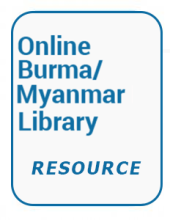Land Library
Welcome to the Land Portal Library. Explore our vast collection of open-access resources (over 74,000) including reports, journal articles, research papers, peer-reviewed publications, legal documents, videos and much more.
/ library resources
Showing items 1 through 9 of 254.A video showing how Lutheran World Federation is working with rural communities, village chiefs, local and national administration to raise awareness and to support people in claiming their legal rights in a context in which a land law was passed to protect small-scale farmers and rural communiti
Brief highlights key attributes of national constitutions, laws, and regulations that play a fundamental role in protecting indigenous and rural women’s rights to community forests and other community lands.
Gives an overview on how to consider gender aspects in projects and programmes addressing land rights. Covers land policy, land legislation, implementation of land laws, enforcement, land administration, example of indicators.
While Burma’s ethnic states are blessed with a wealth of natural resources and biodiversity, they
have been cursed by the unsustainable extraction and sale of those resources, which has fuelled
Myanmar may soon face a land conflict epidemic as a result of the growing influx of investments and
the consequent demand for land, unless laws and policies that adequately address land rights issues
are urgently adopted and implemented.
Burma is situated in Southeastern Asia, bordering Bangladesh, India, China, Laos and Thailand. The
majority of its population lives in rural areas and depends on land as a primary means of livelihood.
မြနမ် ာနိငု ်င၏ံ
ရေရှညတ် ညတ် သံ့ ည့ ်
မြေယာအပု ခ် ျုပေ် ရးနှင့ ်
စီမခံ န့ခ် ွဲမစှု နစ်ဆသီ ိ့…ု .
မြေယာကဏ္ဍ၏ လိအု ပခ် ျကမ် ျားအပေါ် စစီ စအ် ကဲဖြတမ် ဆှု ိငု ရ် ာ
အကြောငး် အရာအလိကု ် မဝူ ါဒရေးရာမတှ စ် မု ျား
This policy note on Land Policy and Regulatory Framework in Myanmar is the first of five policy notes
prepared under the Land Sector Needs Assessment technical assistance initiative between the World Bank
This article explores some of the realities of supporting income generation for displaced people in conflict settings, drawing on experiences in Kachin, northern Myanmar, suggesting development and humanitarian actors need to better acknowledge limitations and rethink our approaches.


